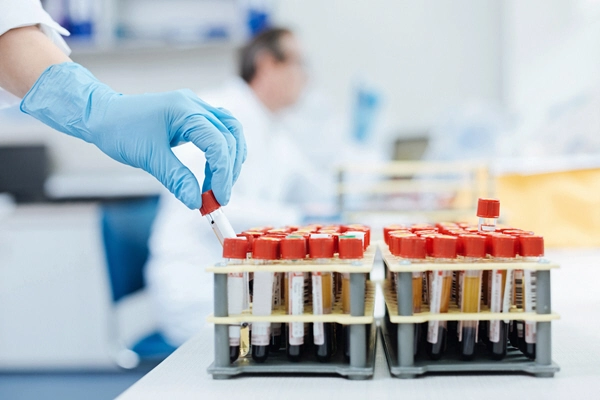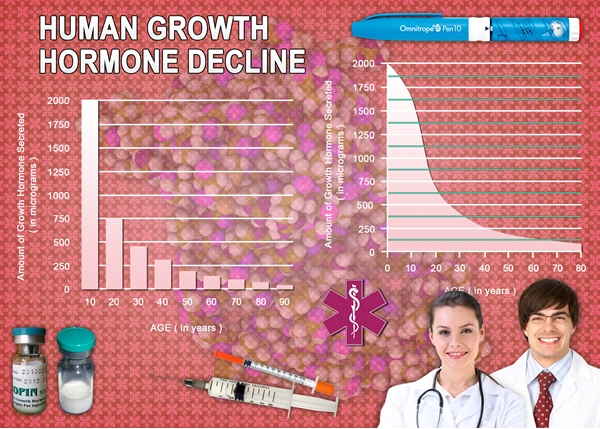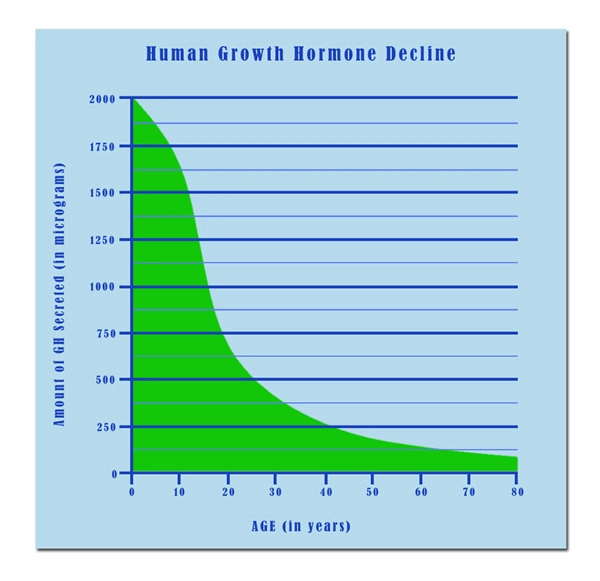Introduction to Prostate Health
The prostate gland, a small but significant organ in the male reproductive system, plays a crucial role in men's health. Located just below the bladder and surrounding the urethra, the prostate produces a fluid that nourishes and protects sperm. As American men age, maintaining prostate health becomes increasingly important, as issues such as benign prostatic hyperplasia (BPH), prostatitis, and prostate cancer can arise. Understanding the basics of prostate health is the first step towards proactive care and early detection of potential problems.
Common Prostate Conditions
American men should be aware of several common prostate conditions. **Benign prostatic hyperplasia (BPH)** is a non-cancerous enlargement of the prostate that can lead to urinary symptoms such as frequent urination, difficulty starting or stopping the urine stream, and a feeling of incomplete bladder emptying. **Prostatitis**, inflammation of the prostate, can cause pain in the lower back, pelvis, or genitals, and may also affect urination. **Prostate cancer**, the most serious condition, is the second most common cancer among American men. Early detection through screening can significantly improve outcomes.
Risk Factors and Prevention
Several risk factors for prostate issues are relevant to American men. Age is the most significant risk factor, with the likelihood of developing prostate problems increasing after the age of 50. Family history, ethnicity (African American men have a higher risk), and diet also play roles. To mitigate these risks, men can adopt a healthy lifestyle, including a diet rich in fruits, vegetables, and whole grains, regular exercise, and maintaining a healthy weight. Some studies suggest that diets high in red meat and high-fat dairy products may increase the risk of prostate cancer, so moderation in these areas is advised.
Screening and Early Detection
Routine screening is vital for early detection of prostate cancer, which can be more effectively treated when caught early. The **prostate-specific antigen (PSA) test** measures the level of PSA in the blood, which can be elevated in men with prostate cancer. The **digital rectal exam (DRE)** allows a healthcare provider to feel the prostate through the rectum to check for abnormalities. The American Cancer Society recommends that men discuss the potential benefits and limitations of prostate cancer screening with their healthcare provider starting at age 50, or earlier if they are at higher risk.
Treatment Options
Treatment for prostate conditions varies based on the specific diagnosis and severity. For BPH, medications can help relax the muscles of the prostate and bladder neck, or shrink the prostate. In severe cases, surgical options like transurethral resection of the prostate (TURP) may be considered. Prostatitis can often be treated with antibiotics if it is bacterial, while chronic cases may require long-term management. Prostate cancer treatment can range from active surveillance for slow-growing tumors, to radiation therapy, surgery, or hormone therapy for more aggressive cancers. The choice of treatment depends on the stage of the cancer, the patient's age, and overall health.
Living with Prostate Conditions
Managing a prostate condition involves not only medical treatment but also lifestyle adjustments. Men with BPH may need to limit fluid intake before bedtime and avoid caffeine and alcohol, which can irritate the bladder. For those with prostate cancer, support groups and counseling can provide emotional support and practical advice. Regular follow-up appointments are crucial to monitor the condition and adjust treatment as necessary.
Conclusion
Prostate health is a critical aspect of overall well-being for American men. By understanding the common conditions, recognizing risk factors, and engaging in regular screening, men can take proactive steps to maintain their prostate health. Open communication with healthcare providers and a commitment to a healthy lifestyle can make a significant difference in managing and preventing prostate issues. As with any health concern, knowledge and early action are key to achieving the best possible outcomes.

- Prostate Health in Aging Men: Understanding Changes and Management Strategies [Last Updated On: March 8th, 2025] [Originally Added On: March 8th, 2025]
- Prostate Cancer Survivorship: Managing Health and Well-being Post-Treatment [Last Updated On: March 16th, 2025] [Originally Added On: March 16th, 2025]
- Prostate Cancer's Psychological Impact and Holistic Care Strategies for American Men [Last Updated On: March 17th, 2025] [Originally Added On: March 17th, 2025]
- Optimal Exercise Practices for Enhancing Prostate Health in American Men [Last Updated On: March 17th, 2025] [Originally Added On: March 17th, 2025]
- Prostate Cancer Screening: Navigating Controversies and Making Informed Decisions [Last Updated On: March 18th, 2025] [Originally Added On: March 18th, 2025]
- Prostate Health: Understanding Family History and Genetic Risks for American Men [Last Updated On: March 18th, 2025] [Originally Added On: March 18th, 2025]
- Understanding BPH: Prevalence, Symptoms, Diagnosis, and Management in American Men [Last Updated On: March 18th, 2025] [Originally Added On: March 18th, 2025]
- Prostate Health: Understanding Symptoms, Screening, and Lifestyle Impact on American Men [Last Updated On: March 18th, 2025] [Originally Added On: March 18th, 2025]
- Prostate Cancer Treatments: Side Effects and Management Strategies for American Men [Last Updated On: March 20th, 2025] [Originally Added On: March 20th, 2025]
- Prostate Health: Understanding Risks and Enhancing Wellness in American Men [Last Updated On: March 20th, 2025] [Originally Added On: March 20th, 2025]
- Dietary Strategies for Enhancing Prostate Health in American Men [Last Updated On: March 20th, 2025] [Originally Added On: March 20th, 2025]
- Prostate Health and Cardiovascular Disease: Shared Risks and Integrated Care Strategies [Last Updated On: March 20th, 2025] [Originally Added On: March 20th, 2025]
- Stress Impact on Prostate Health: Management Strategies for American Men [Last Updated On: March 21st, 2025] [Originally Added On: March 21st, 2025]
- Prostate Cancer's Impact on Fertility: Treatment Effects and Preservation Options [Last Updated On: March 22nd, 2025] [Originally Added On: March 22nd, 2025]
- Prostate Health: Benefits and Types of Exercise for American Men [Last Updated On: March 22nd, 2025] [Originally Added On: March 22nd, 2025]
- Prostate Cancer and Radiation Therapy: Benefits, Advances, and Considerations for American Males [Last Updated On: March 22nd, 2025] [Originally Added On: March 22nd, 2025]
- Active Surveillance: A Key Strategy for Managing Low-Risk Prostate Cancer in American Men [Last Updated On: March 22nd, 2025] [Originally Added On: March 22nd, 2025]
- Prostate Health: Foods to Avoid for Prevention of Cancer and BPH [Last Updated On: March 23rd, 2025] [Originally Added On: March 23rd, 2025]
- Sleep Quality's Impact on Prostate Health: Hormones and Practical Sleep Tips [Last Updated On: March 24th, 2025] [Originally Added On: March 24th, 2025]
- Targeted Therapy for Prostate Cancer: Insights for American Men's Health [Last Updated On: March 24th, 2025] [Originally Added On: March 24th, 2025]
- Hormone Therapy in Prostate Cancer: Benefits, Challenges, and Future for American Men [Last Updated On: March 24th, 2025] [Originally Added On: March 24th, 2025]
- Chemotherapy's Role and Impact on Prostate Cancer in American Men [Last Updated On: March 24th, 2025] [Originally Added On: March 24th, 2025]
- Prostate Cancer and Cryotherapy: A Minimally Invasive Treatment Option for American Men [Last Updated On: March 25th, 2025] [Originally Added On: March 25th, 2025]
- Antioxidants and Prostate Health: Diet, Supplements, and Lifestyle for American Males [Last Updated On: March 25th, 2025] [Originally Added On: March 25th, 2025]
- Selenium's Role in Enhancing Prostate Health: Benefits and Dietary Sources [Last Updated On: March 25th, 2025] [Originally Added On: March 25th, 2025]
- Green Tea Benefits for Prostate Health in American Males [Last Updated On: March 25th, 2025] [Originally Added On: March 25th, 2025]
- Prostate and Bone Health: Critical Links and Management Strategies for American Males [Last Updated On: March 25th, 2025] [Originally Added On: March 25th, 2025]
- Vitamin D's Crucial Role in Prostate Health for American Males [Last Updated On: March 25th, 2025] [Originally Added On: March 25th, 2025]
- HIFU: A Promising Non-Surgical Option for Prostate Cancer Treatment [Last Updated On: March 25th, 2025] [Originally Added On: March 25th, 2025]
- Alcohol Consumption's Impact on Prostate Health: Risks and Benefits for American Men [Last Updated On: March 25th, 2025] [Originally Added On: March 25th, 2025]
- Hydration's Crucial Role in Maintaining Prostate Health for American Males [Last Updated On: March 25th, 2025] [Originally Added On: March 25th, 2025]
- Brachytherapy: Targeted Prostate Cancer Treatment Options and Considerations [Last Updated On: March 26th, 2025] [Originally Added On: March 26th, 2025]
- Heavy Metals' Impact on Prostate Health: Risks, Mechanisms, and Prevention Strategies [Last Updated On: March 26th, 2025] [Originally Added On: March 26th, 2025]
- Zinc's Crucial Role in Prostate Health for American Males [Last Updated On: March 26th, 2025] [Originally Added On: March 26th, 2025]
- Photodynamic Therapy: A Promising, Less Invasive Treatment for Prostate Cancer in American Men [Last Updated On: March 26th, 2025] [Originally Added On: March 26th, 2025]
- Omega-3 Fatty Acids: Enhancing Prostate Health in American Males [Last Updated On: March 26th, 2025] [Originally Added On: March 26th, 2025]
- Prostate Cancer: Stages, Grades, and Treatment Options for American Men [Last Updated On: March 26th, 2025] [Originally Added On: March 26th, 2025]
- Immunotherapy: A New Hope for Prostate Cancer Treatment in American Men [Last Updated On: March 26th, 2025] [Originally Added On: March 26th, 2025]
- Environmental Factors and Prostate Health: Risks and Preventive Measures for American Males [Last Updated On: March 27th, 2025] [Originally Added On: March 27th, 2025]
- Air Pollution's Impact on Prostate Health: Risks and Protective Measures for American Men [Last Updated On: March 27th, 2025] [Originally Added On: March 27th, 2025]
- Prostate Cancer Support Groups: Emotional Aid and Empowerment for American Men [Last Updated On: March 27th, 2025] [Originally Added On: March 27th, 2025]
- Prostate Cancer Management: Understanding Watchful Waiting and Its Implications [Last Updated On: March 27th, 2025] [Originally Added On: March 27th, 2025]
- Proton Therapy: A Targeted Approach to Treating Prostate Cancer in American Men [Last Updated On: March 27th, 2025] [Originally Added On: March 27th, 2025]
- Pesticides and Prostate Health: Risks, Mechanisms, and Preventive Measures for American Males [Last Updated On: March 27th, 2025] [Originally Added On: March 27th, 2025]
- Lycopene's Role in Enhancing Prostate Health: Prevention and Management Strategies [Last Updated On: March 27th, 2025] [Originally Added On: March 27th, 2025]
- Chemoprevention Strategies for Prostate Cancer Prevention in American Men [Last Updated On: March 27th, 2025] [Originally Added On: March 27th, 2025]
- Plastics and Prostate Health: Risks, Research, and Reduction Strategies for American Males [Last Updated On: March 28th, 2025] [Originally Added On: March 28th, 2025]
- Chronic Inflammation's Impact on Prostate Health in American Males: Prevention and Management [Last Updated On: March 28th, 2025] [Originally Added On: March 28th, 2025]
- Palliative Care's Vital Role in Enhancing Prostate Cancer Patients' Quality of Life [Last Updated On: March 28th, 2025] [Originally Added On: March 28th, 2025]
- CyberKnife Radiosurgery: Precision Treatment for Prostate Cancer in American Men [Last Updated On: March 29th, 2025] [Originally Added On: March 29th, 2025]
- Vitamin E's Role in Prostate Health: Benefits and Dietary Sources [Last Updated On: March 29th, 2025] [Originally Added On: March 29th, 2025]
- Prostate Cancer Surgery: Benefits, Risks, and Choosing the Right Approach [Last Updated On: March 30th, 2025] [Originally Added On: March 30th, 2025]
- EMFs and Prostate Health: Risks, Mechanisms, and Mitigation Strategies for American Males [Last Updated On: March 31st, 2025] [Originally Added On: March 31st, 2025]
- Robotic Surgery for Prostate Cancer: Benefits, Procedure, and Recovery Insights [Last Updated On: March 31st, 2025] [Originally Added On: March 31st, 2025]
- Prostate Cancer and Focal Therapy: A Targeted Approach for American Men [Last Updated On: April 2nd, 2025] [Originally Added On: April 2nd, 2025]
- Cruciferous Vegetables: Enhancing Prostate Health in American Males [Last Updated On: April 2nd, 2025] [Originally Added On: April 2nd, 2025]
- Endocrine Disruptors and Prostate Health: Risks, Exposure, and Mitigation Strategies [Last Updated On: April 6th, 2025] [Originally Added On: April 6th, 2025]
- Laparoscopic Surgery for Prostate Cancer: Benefits, Procedure, and Recovery for American Men [Last Updated On: April 8th, 2025] [Originally Added On: April 8th, 2025]
- Industrial Chemicals and Prostate Health: Risks and Mitigation for American Males [Last Updated On: April 8th, 2025] [Originally Added On: April 8th, 2025]
- Prostate Cancer Management: The Role and Future of Neoadjuvant Therapy [Last Updated On: April 9th, 2025] [Originally Added On: April 9th, 2025]
- Palliative Surgery for Prostate Cancer: Enhancing Quality of Life for American Men [Last Updated On: April 9th, 2025] [Originally Added On: April 9th, 2025]
- Soy's Role in Enhancing Prostate Health: Benefits and Dietary Integration [Last Updated On: April 9th, 2025] [Originally Added On: April 9th, 2025]
- Salvage Therapy: A Second Chance for American Men with Recurrent Prostate Cancer [Last Updated On: April 10th, 2025] [Originally Added On: April 10th, 2025]
- Bisphosphonates: Enhancing Bone Health in American Men with Prostate Cancer [Last Updated On: April 11th, 2025] [Originally Added On: April 11th, 2025]
- Pomegranate: A Natural Ally for Prostate Health in American Males [Last Updated On: April 11th, 2025] [Originally Added On: April 11th, 2025]
- Prostate Health: Medications, Risks, and Lifestyle Management for American Males [Last Updated On: April 12th, 2025] [Originally Added On: April 12th, 2025]
- Flaxseed: A Natural Approach to Enhancing Prostate Health in American Males [Last Updated On: April 13th, 2025] [Originally Added On: April 13th, 2025]
- Adjuvant Therapy in Prostate Cancer: Hormonal, Radiation, and Chemotherapy Roles [Last Updated On: April 13th, 2025] [Originally Added On: April 13th, 2025]
- Shift Work's Impact on Prostate Health: Risks and Mitigation Strategies for American Males [Last Updated On: April 15th, 2025] [Originally Added On: April 15th, 2025]
- Radium-223: Targeted Therapy for Metastatic Prostate Cancer in American Men [Last Updated On: April 17th, 2025] [Originally Added On: April 17th, 2025]
- Prostate Health Risks and Strategies for Long-Haul Truckers [Last Updated On: April 18th, 2025] [Originally Added On: April 18th, 2025]
- RANK Ligand Inhibitors: A Promising Treatment for Advanced Prostate Cancer [Last Updated On: April 18th, 2025] [Originally Added On: April 18th, 2025]
- Turmeric's Potential Benefits for Prostate Health in American Males [Last Updated On: April 18th, 2025] [Originally Added On: April 18th, 2025]
- Enzalutamide: Revolutionizing Prostate Cancer Treatment and Enhancing Quality of Life [Last Updated On: April 18th, 2025] [Originally Added On: April 18th, 2025]
- Denosumab's Role in Managing Bone Health for Advanced Prostate Cancer Patients [Last Updated On: April 18th, 2025] [Originally Added On: April 18th, 2025]
- Heavy Physical Work's Impact on Prostate Health: Risks and Mitigation for American Males [Last Updated On: April 19th, 2025] [Originally Added On: April 19th, 2025]
- Ginger's Role in Supporting Prostate Health: Benefits and Dietary Integration [Last Updated On: April 19th, 2025] [Originally Added On: April 19th, 2025]
- Abiraterone: A New Hope in Treating Advanced Prostate Cancer in American Men [Last Updated On: April 19th, 2025] [Originally Added On: April 19th, 2025]
- Prostate Health: Importance of Regular Check-ups for Men Over 50 [Last Updated On: April 21st, 2025] [Originally Added On: April 21st, 2025]
- Tomatoes and Prostate Health: Lycopene's Role in Cancer Prevention [Last Updated On: April 21st, 2025] [Originally Added On: April 21st, 2025]



List of USA state clinics - click a flag below for blood testing clinics.
Word Count: 625



















































